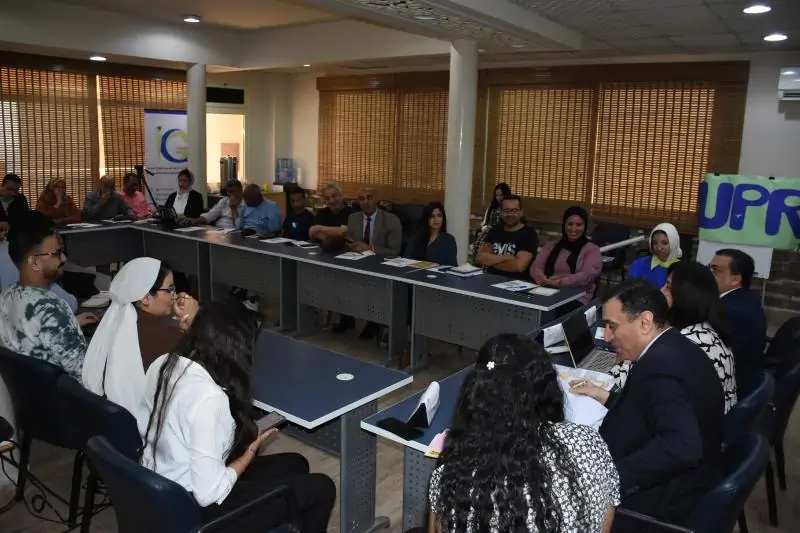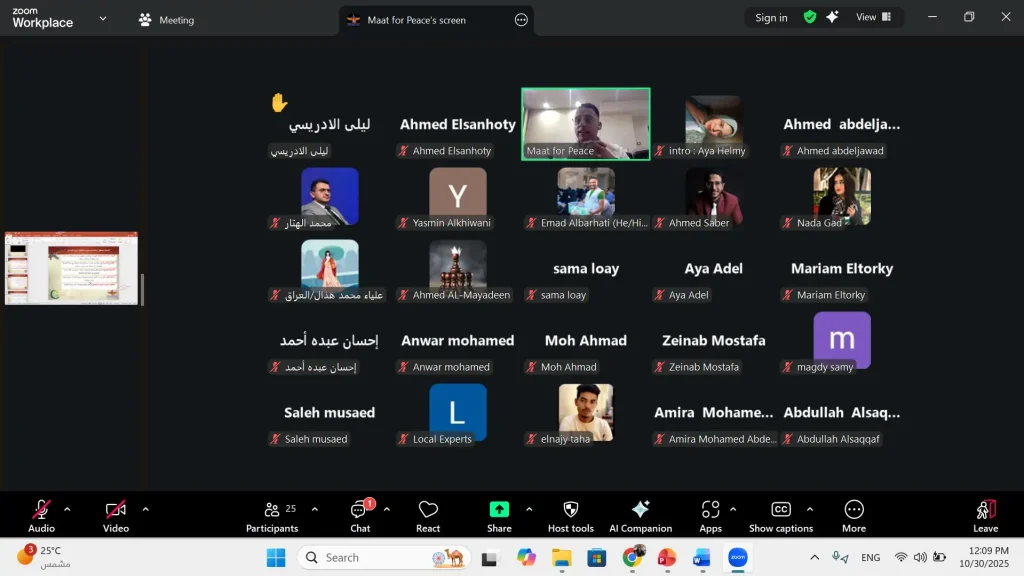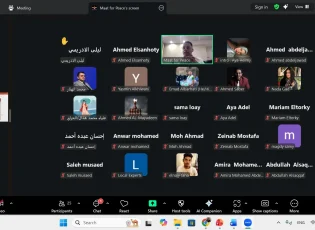“Okeil”: We are working to include implementable recommendations in the Egyptian Coalition’s report on the universal periodic review, with a focus on the rights of the most vulnerable groups
Maat for Peace, Development and Human Rights, and the Egyptian Coalition for the Universal Periodic Review, held a panel discussion entitled “Most vulnerable groups in light of international standards and the national human rights strategy,” focusing on four axes: women, youth, children, and people with disabilities, as part of preparations for preparing reports to be submitted to the UPR Mechanism. In the presence of specialized experts in these fields, media professionals, journalists, and civil society representatives who are members of the Egyptian Coalition for the Universal Periodic Review.
Ayman Okeil, the international human rights expert and Chairman of Maat for Peace, said that Egypt’s record will be discussed within the universal periodic review mechanism in Geneva in January 2025, adding that civil society organizations will submit their reports until July 2024. He stressed that the coalition is working to include implementable recommendations in the Report of the Egyptian Coalition on the Universal Periodic Review, with a focus on the rights of the most vulnerable groups.
In the context of the women’s axis, Amal Tawfiq, Director of the Complaints Office at the National Council for Women, addressed the Council’s role in three axes, including awareness support through family and community guidance in villages through seminars, economic support for women and the family as a whole through financial education courses, and the axis Legislative Council, in cooperation with law enforcement agencies such as the Ministry of Justice and the Ministry of Labor, by developing articles on harassment at work, and a number of projects are still in Parliament, in addition to paying attention to the file of personal status, violence against women, cyber violence, problems of implementing rulings, work problems, and economic, social, and psychological rights. Tawfiq recommended the need to pay attention to reproductive health projects, presidential initiatives, state budgets, their role in developing the Egyptian family, and trying to achieve the greatest possible benefit.
Regarding youth, Ayman Fouad, the President of the Court of Appeal and the human rights expert, said that the Egyptian Constitution of 2014 stipulated the empowerment of youth, especially in Article 242 for political representation, and Article 180 stipulated the election of local units and the allocation of not less than a quarter of the seats for youth, in addition to the National Human Rights Strategy, which dealt with the political empowerment of youth and the right to run. And the elections, as well as the decision of the Council of Ministers, to increase the youth, and the Conservative Movement included 39 youth leadership, and he recommended issuing a local administration law and giving opportunities to young people to take charge and real support, and urging political parties to involve young people and consider preparing a plan to empower young people and change school curricula, and the return of the University Union.
In the context of the child axis, Ahmed Moselhi, head of the Child Defense Network and a cassation lawyer, referred to Article 180, which stipulates the prohibition of work for children who have not reached basic education, stressing that the law protects the child from exploitation, as the exploiter is exposed to 5 years in prison. Moselhi recommended The need to raise awareness among families about the danger of child labor, and that there be a supervisory role for the Ministry of Solidarity and Manpower to combat child labor, and to activate the receipt of immediate reports.
Regarding people with disabilities, Osama Taye, Head of the Haqqi Foundation for the Rights of People with Disabilities, explained that there is development and boom in laws related to people with disabilities, as Egypt ratified the Convention on Persons with Disabilities, in addition to the development of the legislative framework to increase penalties against violators, but there is still the phenomenon of the insurance bracket, and he addressed the challenges facing this group due to discrimination against groups of people with disabilities, in addition to the displacement of children as a result of the family’s unwillingness to bear responsibility for people with disabilities, and the limited number of facilities for those groups.
For her part, Marina Sabri, Director of the International Mechanisms for the Protection of Human Rights Unit at Maat for Peace and the coordinator of the event, confirmed that this seminar comes within the framework of the keenness of Maat and the Egyptian Coalition for the Universal Periodic Review to hold serious discussions among all stakeholders to come up with practical recommendations that can be included in the coalition’s reports.
shortlink: https://maatpeace.org/en/?p=42784





















